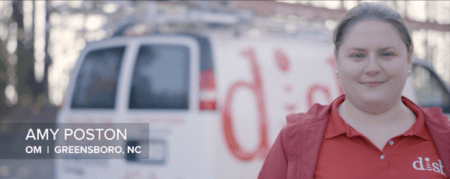Editor’s Note: At Maximize 2019, ServiceMax’s annual field service conference, we sat down with Robb Origer from DISH and Cathy Klein from JCI on ServiceMax Live to talk about the Women’s Networks at their companies. This article sums up their tips for starting a Women’s Network.
Why Start a Women’s Network?
Field service has long been a heavily male-dominated industry, but more and more women are joining technician, engineer, operations and management roles, thanks in part to organizations like Women’s Networks. By creating a Women’s Network at your company, you can provide networking and mentorship opportunities as well as a safe place for women to ask questions and get advice without fear of judgment. Through these various opportunities, Women’s Networks help more women move into leadership roles, which means more role models for those considering entering the industry.
Why Is Diversity in the Workforce So Critical?
For Robb Origer, VP of In-Home Service at DISH, diversity is critical for creating the best possible team to go after DISH’s big goals: “To me, part of having the best team means you include different experiences and diversity of thought and opinion when making decisions, whether big strategic ones or seemingly smaller tactical ones,” says Robb. “Companies with diverse workforces tend to lead their market in innovation,” adds Cathy Klein, Global Transformation Leader at JCI. Additionally, as customers in the field service industry become more diverse, they are looking to work with vendors that reflect that.
What Are Your Tips for Starting a Women’s Network?

Amy Poston, Operations Manager in Greensboro, NC
The Women’s Network at DISH was started by a few very motivated employees who had executive support and truly wanted to make DISH a great place to work. They put together a charter for education, networking, and career advancement and dove right in.
Robb suggests starting small. “We started with a speaker series where we invited somebody to come and tell their DISH leadership story and saw a great response from employees,” Robb says.
Today, the DISH Women’s Network has expanded its offerings, in addition to spawning various other employee groups such as the Veteran’s Resource Group, Empowered Parents, and Out at DISH. For Robb, what all these groups come down to is really making DISH a great place to be an employee.
At JCI, there were various pockets of grassroots efforts towards a women’s network, and in 2010, leadership decided to hold the Women’s Growth Network Summit to discuss how they could get a formal Women’s Growth Network together. Out of this Summit came a hub and spokes model, where Cathy led JCI’s Women’s Growth Network chapter at corporate.
Cathy’s advice for leaders thinking about kicking off a women’s network? Speak up, be an advocate, bring awareness to issues like unconscious bias, and bring in executive support. “We had sponsorship by executives and a number of male volunteers that understood the necessity of diversity for the organization. By employees understanding that leadership is backing this and that it’s important to them, it brought a lot more light to the effort,” Cathy says.
Similar to DISH, the creation of a women’s network led to other resource groups that were employee-lead, grassroots efforts around the employee experience and career development.
“We all need to think about ways to bring in more diversity, and a women’s group is a way to do it,” says Cathy.
Watch the ServiceMax Live Episode on this topic:


Share this: